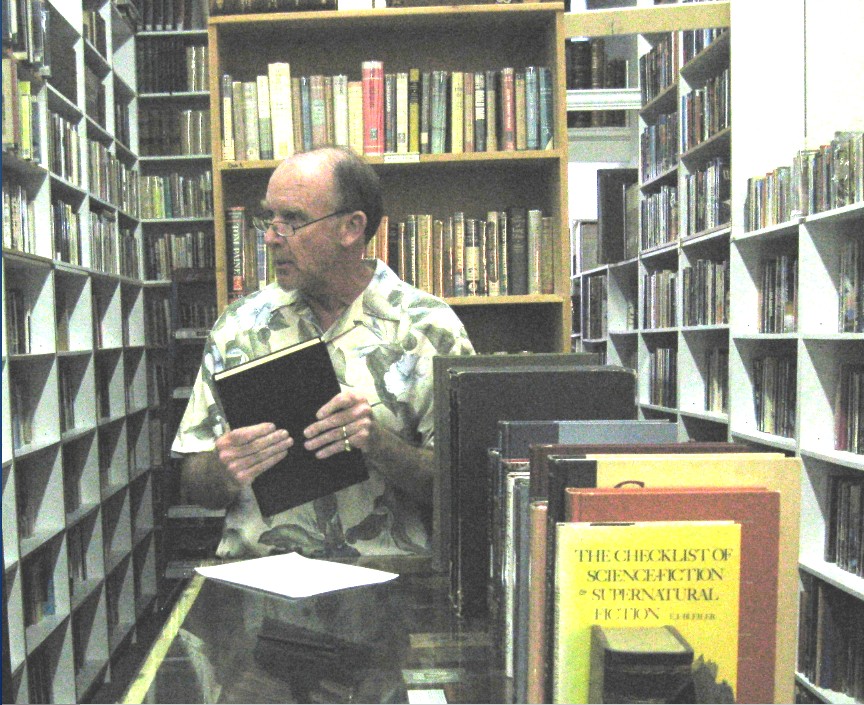Using Reference Works Can Help Enhance Value
- by Susan Halas

Instructor Vic Zoschack, Tavistock Books, selects his references for bibliography class.
His own collection of bibliographies and related works exceeds 2,000 volumes. He’s one of the few you’ll encounter to wax lyrical on the National Union Catalog (NUC) which even in microfiche takes up a vast amount of space and requires its own semi- antique reader. In keeping with his enthusiasm and hoping to pass it on to the less meticulously inclined, Zoschak hosts a once a year free informative all day workshop on using and citing bibliographic references for, as the saying goes, “fun and profit.”
This year AE was fortunate enough to be on the guest list for the event held at his East Bay shop along with eight others including dealers, would-be dealers, catalogers, Vic’s own assistant-in-training and the young son of one of the participants taking videos for the benefit of those who might find the information potentially useful in future youtube snippets.
“Time is money,” says Zochak with conviction, and indeed this premise, which might seem obvious, is not a common sentiment in the world of books. His attitude is it’s better to use your time researching and writing up descriptions of your inventory in the most attractive, convincing and authoritative manner than to hope that fortune and destiny will deliver that signed first of the Wasteland hidden beneath the stack of old AARP magazines at the neighborhood yard sale. That’s a round about way of saying you’ll make more money if you throw your lot in with the bibliographers, and if you can’t be one yourself, acquiring at least a basic familiarity with some of the terminology and techniques can add multiple 000s to the value of your offerings.
His presentation is constructed around familiarizing the participants with the elements that contribute to “value,” i.e. edition, condition, availability and desirability and urging them to avoid customers bearing the old family bibles, text books and religious tracts in favor of putting the time and energy into research and becoming knowledgeable (or preferably expert) in writing clear descriptions that inspire confidence.
Zoschak says he never cites a reference unless he has personally checked it himself and told several amusing incidents where less ethical dealers had swiped citations off the internet only to be asked to provide a Xerox of the reference that they clearly did not know, possess or consult. Conspiratorially he told us that one of the good parts about doing a thorough reference check was the possibility your title would not appear in any of the standard works. In which case, you could confer the coveted “not in” and cite all the places it wasn’t, thus adding by implication to rarity and desirability of your book.